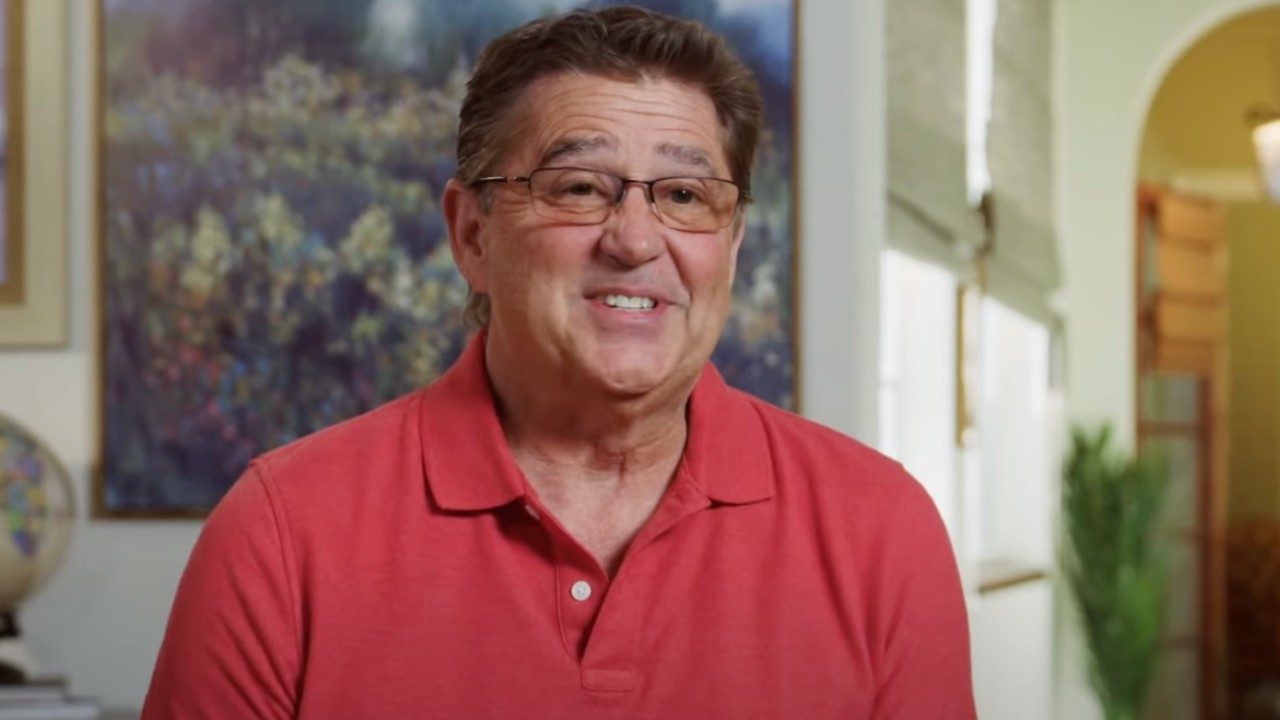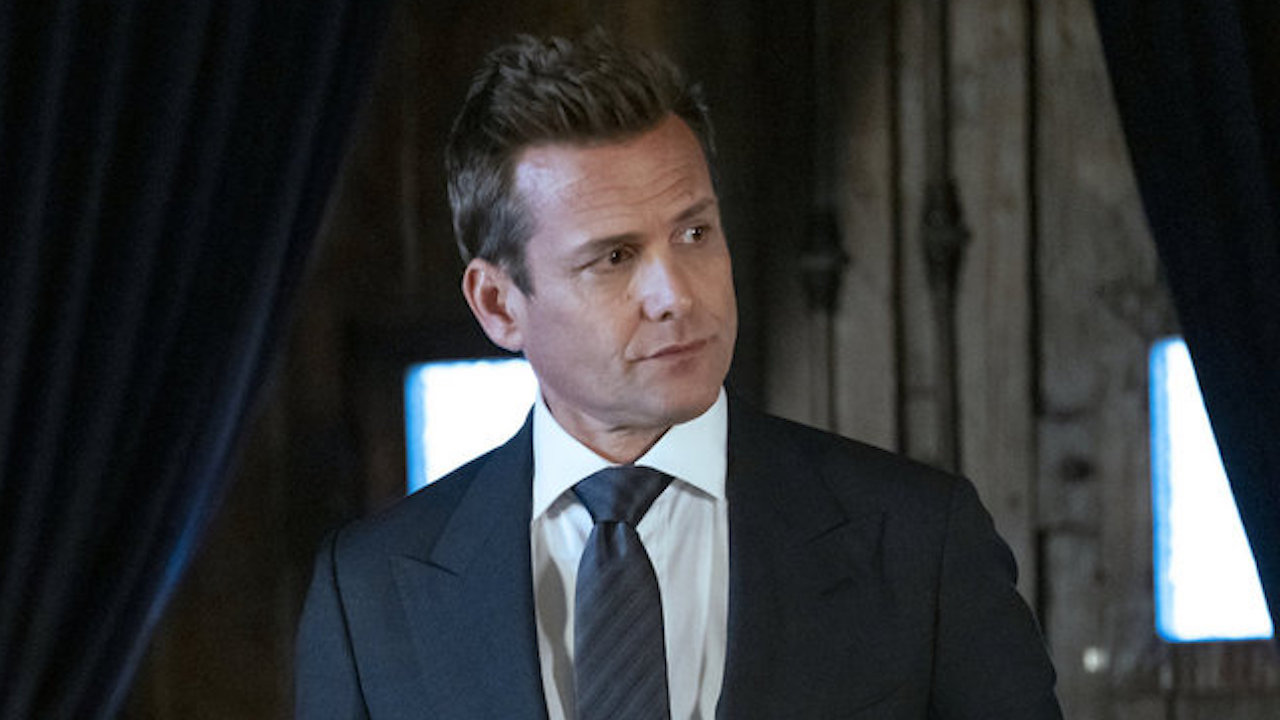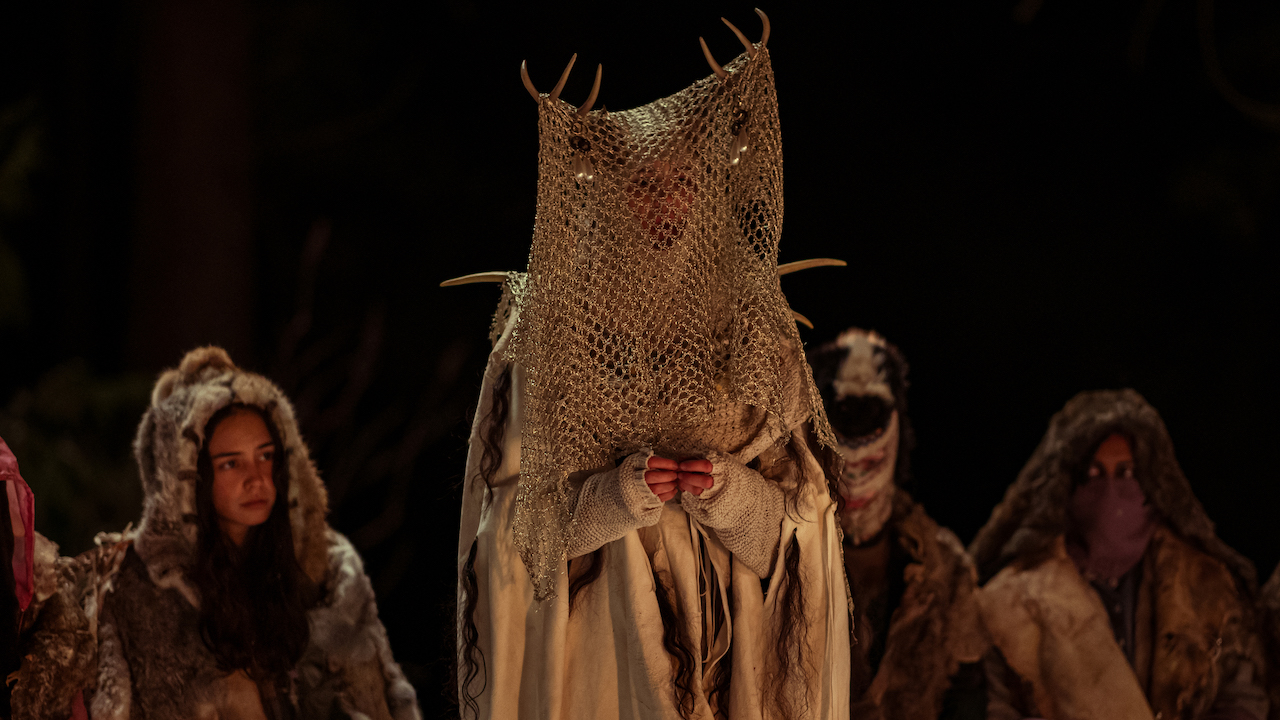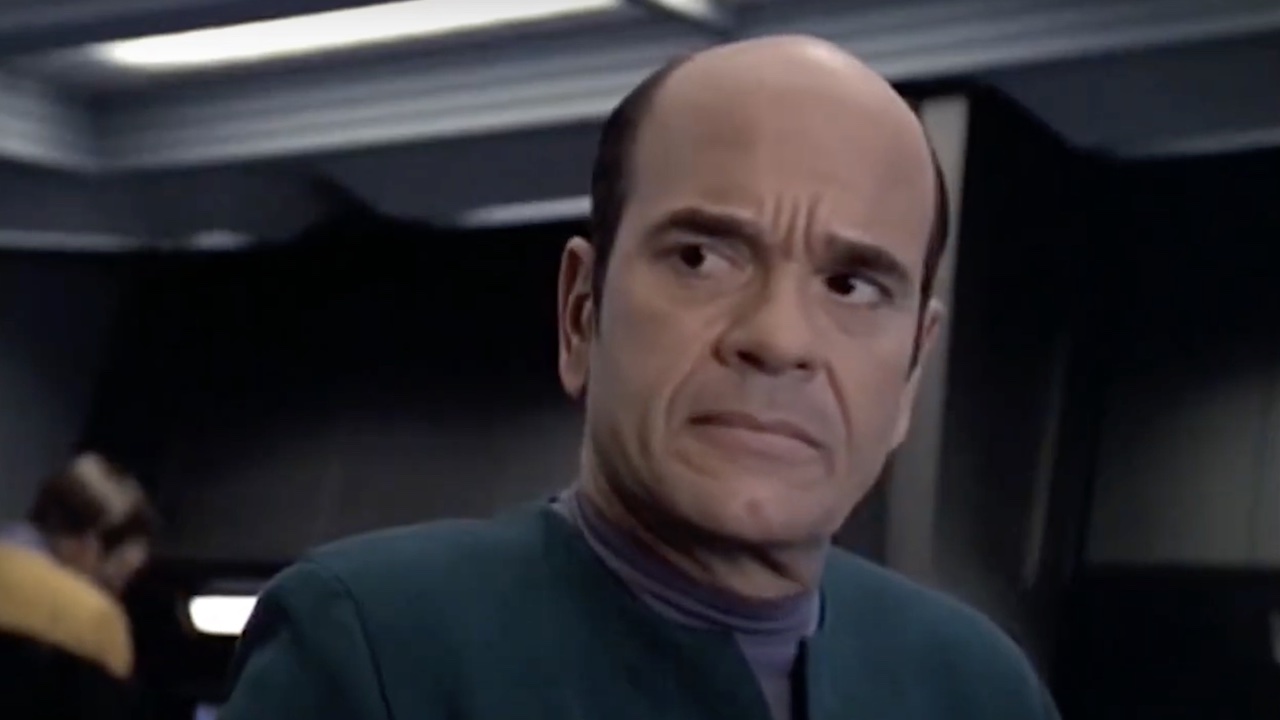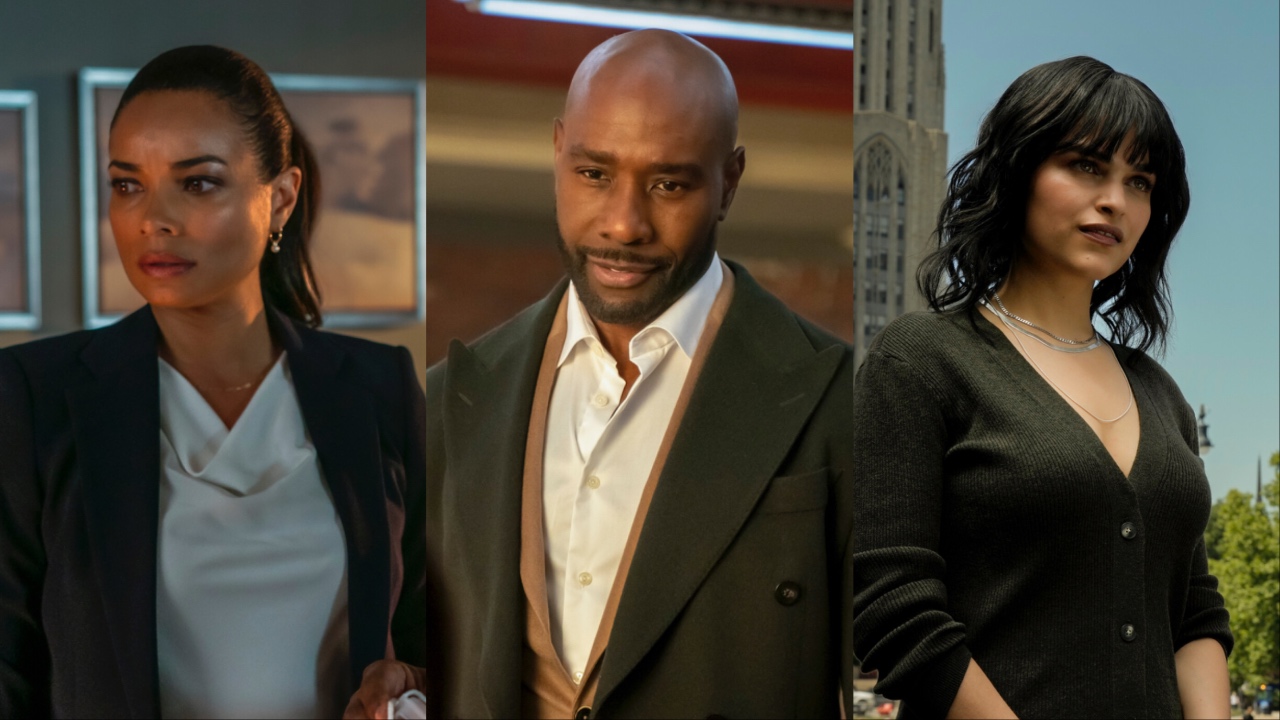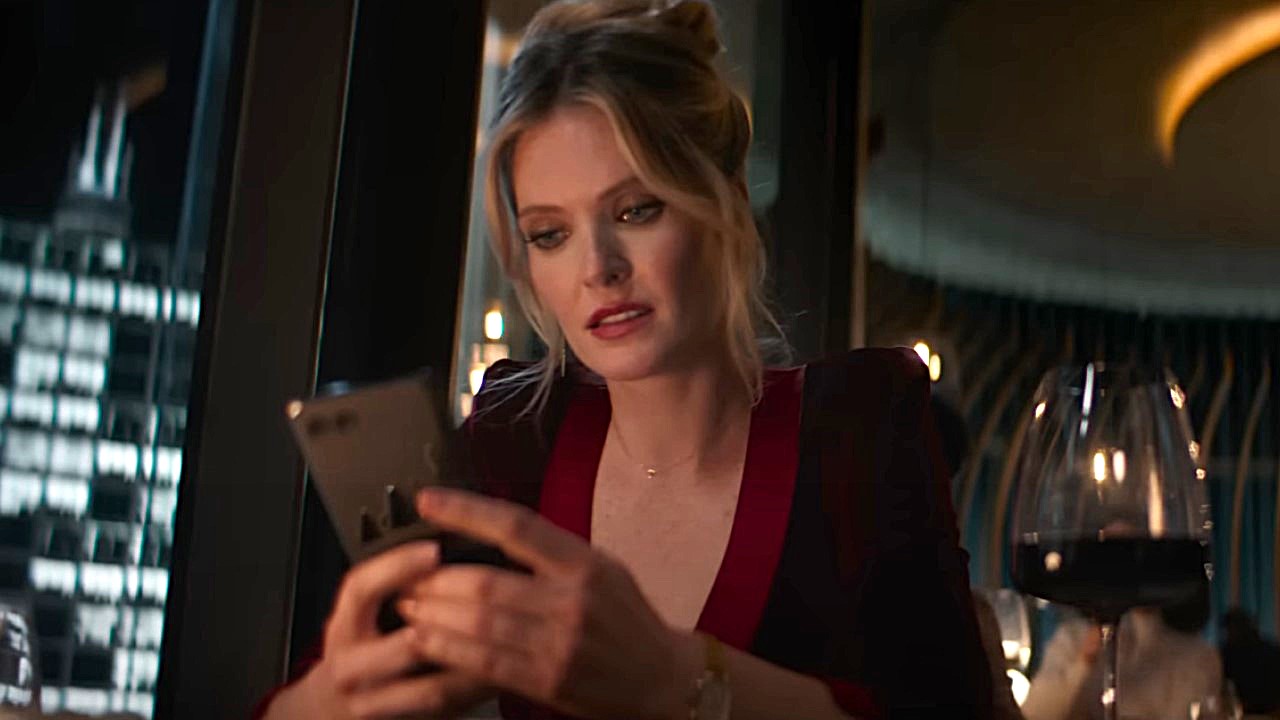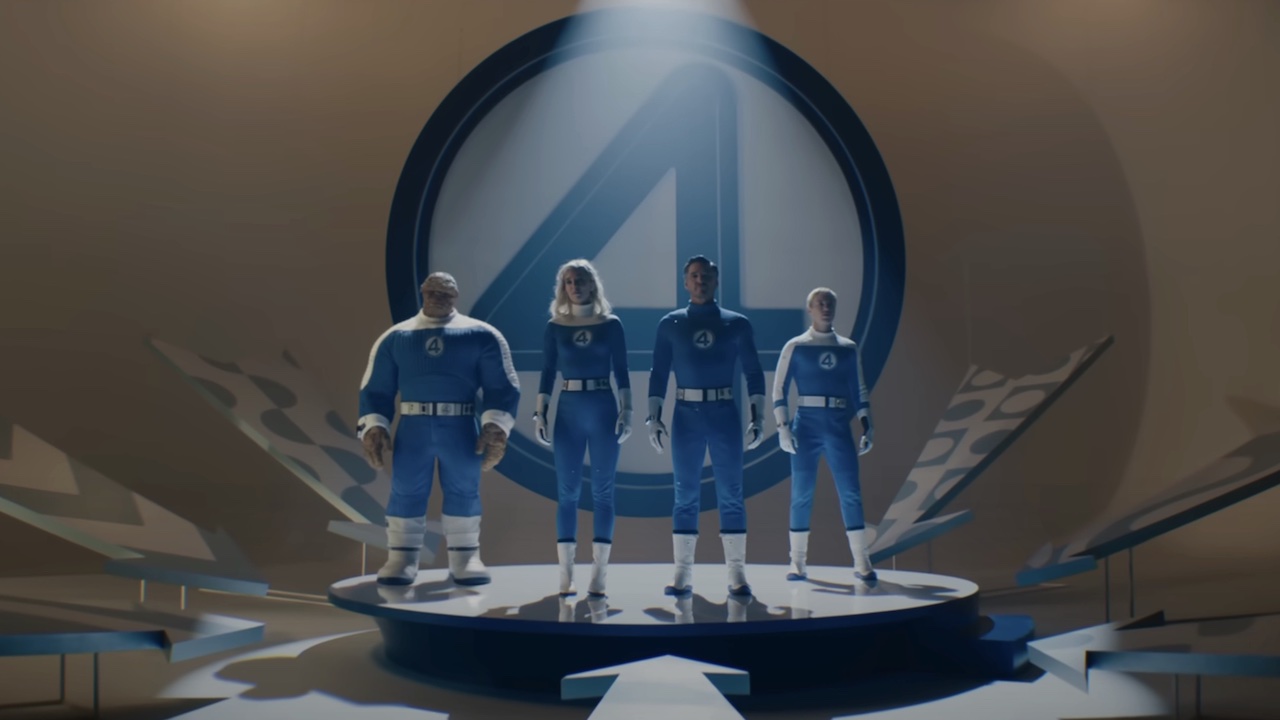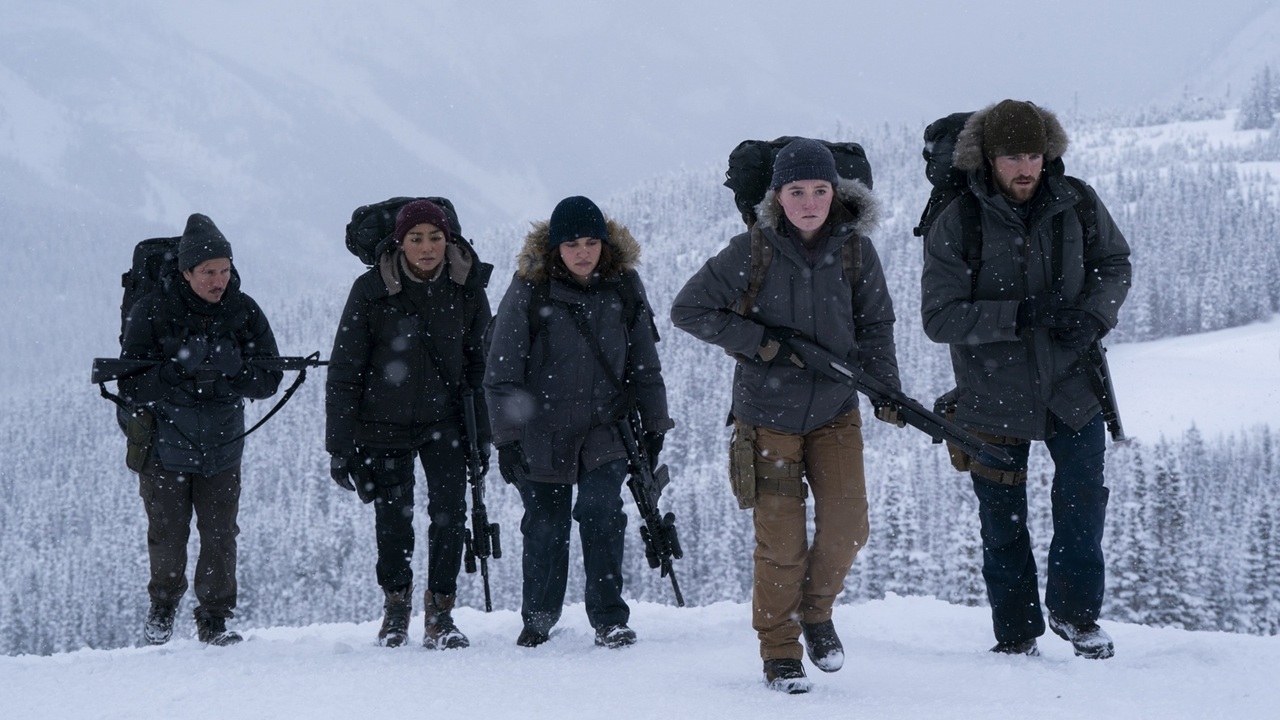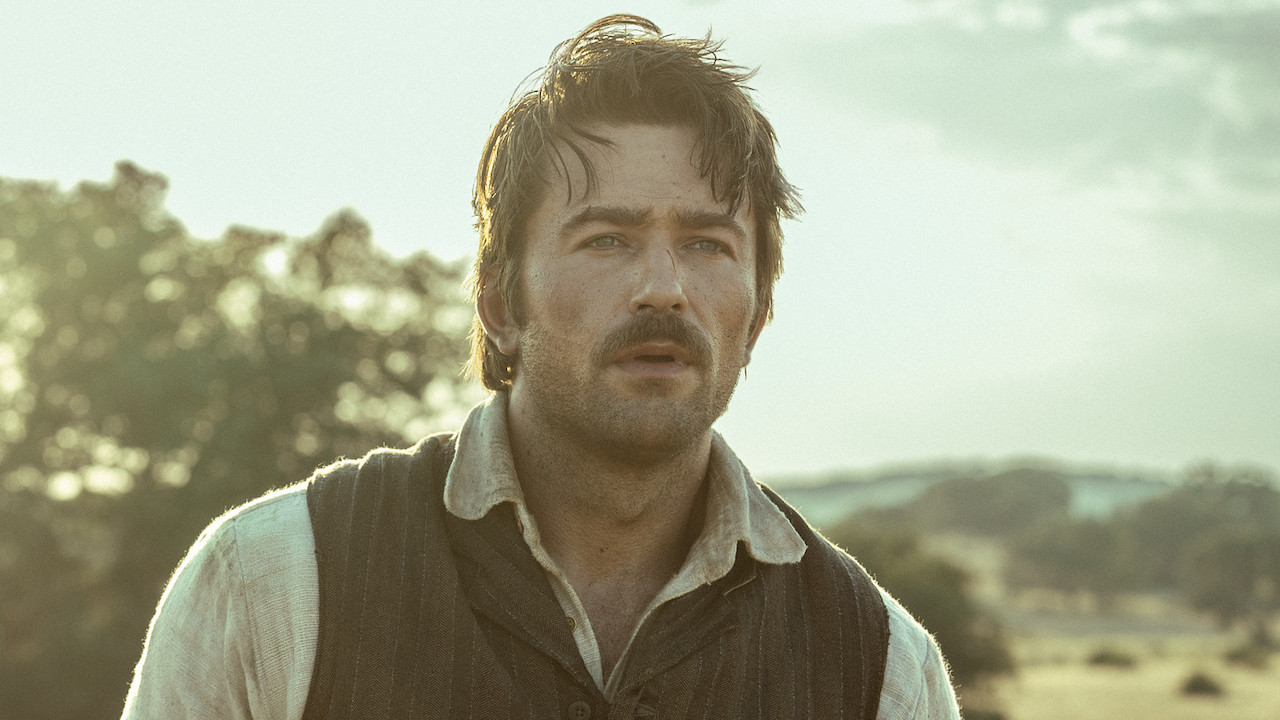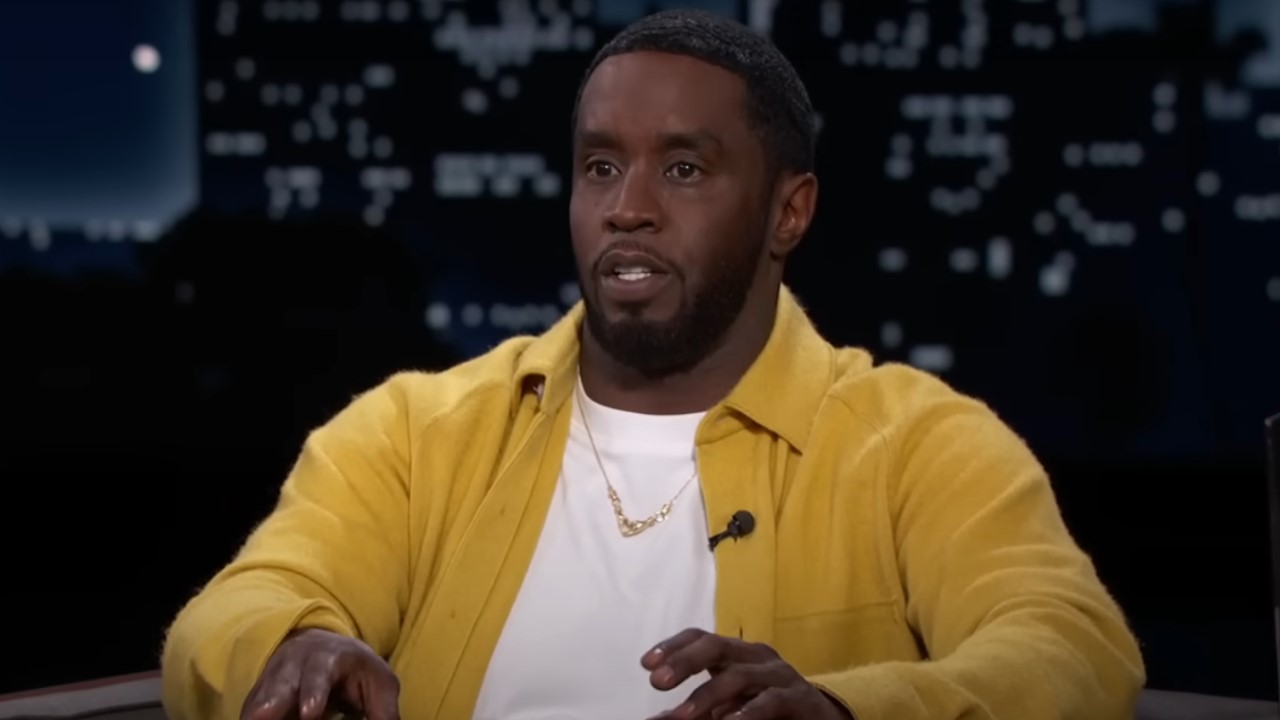Interview: Broken Lizard's Kevin Heffernan
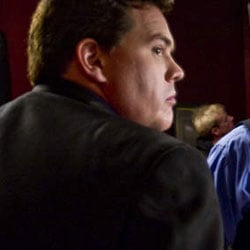
If you've ever spent any time waiting tables, chances are you've got some stories to tell. Like any job that involves customer service, waiters get to see people not only at their worst, but at their most insane, most petulant, and most downright odd. It's clear that The Slammin' Salmon, the latest flick to hit DVD from comedy troupe Broken Lizard (Super Troopers, Beerfest) has more than a little personal experience firing its screenplay, and the result is a movie our own Josh Tyler called "easily the best work Broken Lizard has ever done."
The Salmon in question is a trendy restaurant owned by a former heavyweight boxing champion played by Michael Clarke Duncan. The champ owes money to some bad people, so he announces a contest that is actually more of a threat: he needs money fast, so whoever sells the most food that night gets 10 grand, while the person who sells the least gets an assortment of broken bones and contusions. In addition to the usual Broken Lizard crew and Duncan, the cast includes How I Met Your Mother's Cobie Smulders, geek lust target Olivia Munn, and Will "MacGruber" Forte.
Directing for the first time is Lizard member Kevin Heffernan, who Beerfest fans will remember as Landfill/Gil. Kevin took a few minutes last week to talk to us about the movie, what it was like in the director's chair, and how the Broken Lizard guys have managed to avoid splitting up or killing each other after all these years.
You guys have been making movies for a while now, and Jay Chandrasekhar has directed most of them prior to this. How did they decide it was your turn? Was there a coin-flip involved?
The other guys like to joke that the decision was made by weight. But no, actually what happened was that this movie came together very quickly, because we did it with private financing. We had written the script, and we knew we could make it as a low-budget film. As the writers' strike was approaching a couple of years ago, we put it together very quickly. Jay was attached to a Warner Bros. movie at the time, so he couldn't commit, so I said I'll do it.
So the script was already written prior to the writers' strike? Did it shoot during the strike?
Yeah, it shot during. It was a script we had written a while back. Around the time we started doing Beerfest, we started writing this script and Beerfest at the same time, because they were intended to be different budgets. If we got a higher budget we could do Beerfest, but if we had a lower budget then we could do Slammin' Salmon. So then we made Beerfest and kind of put Slammin' Salmon in the back pocket. When the opportunity arose for us to do it, we were able to put the money together pretty quickly.
CINEMABLEND NEWSLETTER
Your Daily Blend of Entertainment News
Is that pretty typical of how you guys work? How do you decide what project to pursue next?
You're a victim of circumstances in a way. It depends which project gets momentum, or if you have a champion, or if you have access to money for a particular idea. A lot of the time we have to make sure -- like I said, we had scripts for multiple budget possibilities -- and you just have to make sure you're ready for that type of stuff. When the stuff comes your way, you can go in that direction. With Slammin' Salmon, because the industry was drying up, we were able to go outside the industry and do it that way. We always want to have a lot of ideas. The hard thing is getting five guys to spark to an idea. When you do, you feel pretty good. Then we stockpile those and see what wave we can ride with it.
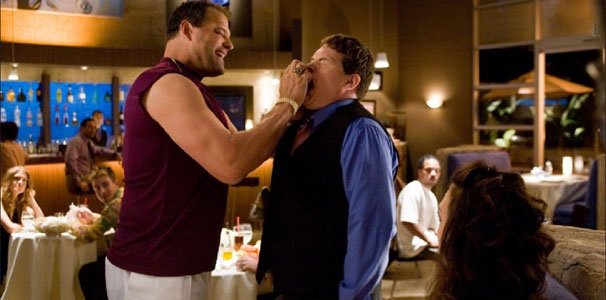
Are you guys always mindful of budget when you're writing or brainstorming?
You usually know from the idea where you can go, but we are definitely very mindful of it. We started out purely as an independent filmmaking entity, and we made Super Troopers for $1.2 million. We know about that low-budget world, so it's definitely always on our mind. We haven't necessarily made the $100 million comedy, where people are going to be throwing that kind of money at us. We have our big-budget comedy ideas. We have our sword-and-sandals epic comedy, but you know in the back of your mind that it's going to be difficult to get the kind of money to make that kind of thing. You always try to keep your ideas in a grounded world.
Is there a structure to how you guys operate once you decide to work on an idea? Are there roles that certain people always fall into or does everybody do a little of everything?
It depends on who has the passion for it. We call that guy The Bitch. They become the Project Bitch for that project. For example, on Slammin' Salmon, Steve Lemme is a guy who waited tables for six or seven years, that was his world, so he was really the shepherd on the writing on that project. There's always that one guy who's doing the typing, so we try to mix that role up.
How does the writing process work? Is it just a lot of brainstorming, then you assign the one guy to go off and write it?
Yeah, that's a lot of what it is. Once we do settle on the idea, we'll sit around and shoot out ideas, try to make a detailed outline. On certain scripts we've done an outline and then each guy writes like 20 pages. I wouldn't recommend that for people, necessarily, but we've been working together for so long, and we know what people like and the voice that people have, so we can write the scripts more quickly and put them together. Then one guy will go off and put it all into one voice. It's a very collaborative, round-table kind of thing with one guy playing the role of secretary, basically.
So who was the guy at the typewriter this time?
For Slammin' Salmon it was Steve. For Beerfest it was me. Paul Soter was Club Dread, and Jay Chandrasekhar was Super Troopers. So yeah, we've mixed it up a lot.
When you're the guy at the typewriter, do you go off on your own, finish a draft, then come back, or are you showing stuff around constantly as you go?
You'll go do the draft, then you bring it back to the group and it'll go around the horn again. Everyone reads and gives their thoughts, page by page and line by line, then you go back and do it again. Over the course of a script you'll do 10, 20 drafts that way.
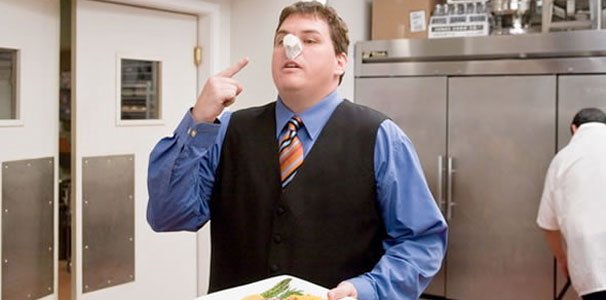
How brutal is it when you have the one joke you're really excited about and you have to face a roomful of guys who probably take great joy in mocking you?
Terrible. It's good and bad. We've been working together for so long, you don't have to pussyfoot around it, but at the same time it can get very frustrating. That's why bands break up, you know? You've got to run your idea through the gamut. Sometimes when you're The Bitch, the secretary, you can sneak a few things in here and there [laughs]. For the most part, it's got to run the gamut, and sometimes you get shot down. Then you just take that joke and you stick it in your solo project. [laughs]
How have you guys managed to survive this long without splitting up or killing each other?
It happens. You know, people get pissed off. I think it is a function of having been together for so long. When we started, we were friends together in college, and we didn't even know what we were doing, so we all learned how to do it together. You can get into these drag-down fights and know that the next day you'll move on. You learn how to get your ideas to work out.
So there hasn't been a Yoko yet?
We haven't had any Yokos. Everyone has gotten married and it hasn't turned out to be a problem. Also, people do go off and write their own things, and I think that probably is the outlet that keeps the other thing going on.
You've had experience writing and acting, so how did everything you've done on those two fronts prepare you to step into the director role?
It's a very collaborative process for us anyway, so I'd always been involved in all the aspects of every stage, whether it's pre-production or post-production or production. That was pretty helpful. Also, editing our movies in the past, I always feel like a director needs to have an editor inside him, so they know how to construct something properly. We always used to give Jay a lot of shit when he was directing, but when you do it you realize that that guy has seven or eight things going on in his head. When you're acting and directing, you're standing there acting with another actor, and you're trying to do your performance, and at the same time you're watching their performance, and making sure the lights are in the right place, and if the person is wearing the right wardrobe. All these things are going on in your head. It was helpful to me to have had experience in acting to fall back on that while you're directing.
90 Day Fiancé's Mina Found Out About Mark's Troubled Past Relationship, But Are They Still Together?
Suits LA Brought Back Harvey Specter To Set Up Another Suits Character Coming In, But The Ending Twist Especially Threw Me For A Loop
The Last Of Us Season 2 Premiere Watchalong: I'm Talking Joel And Ellie Awks, Video Game Moments, That Kiss And More
